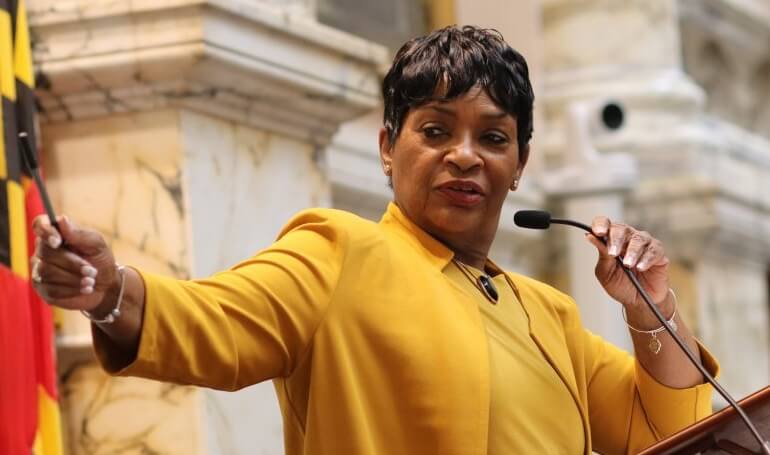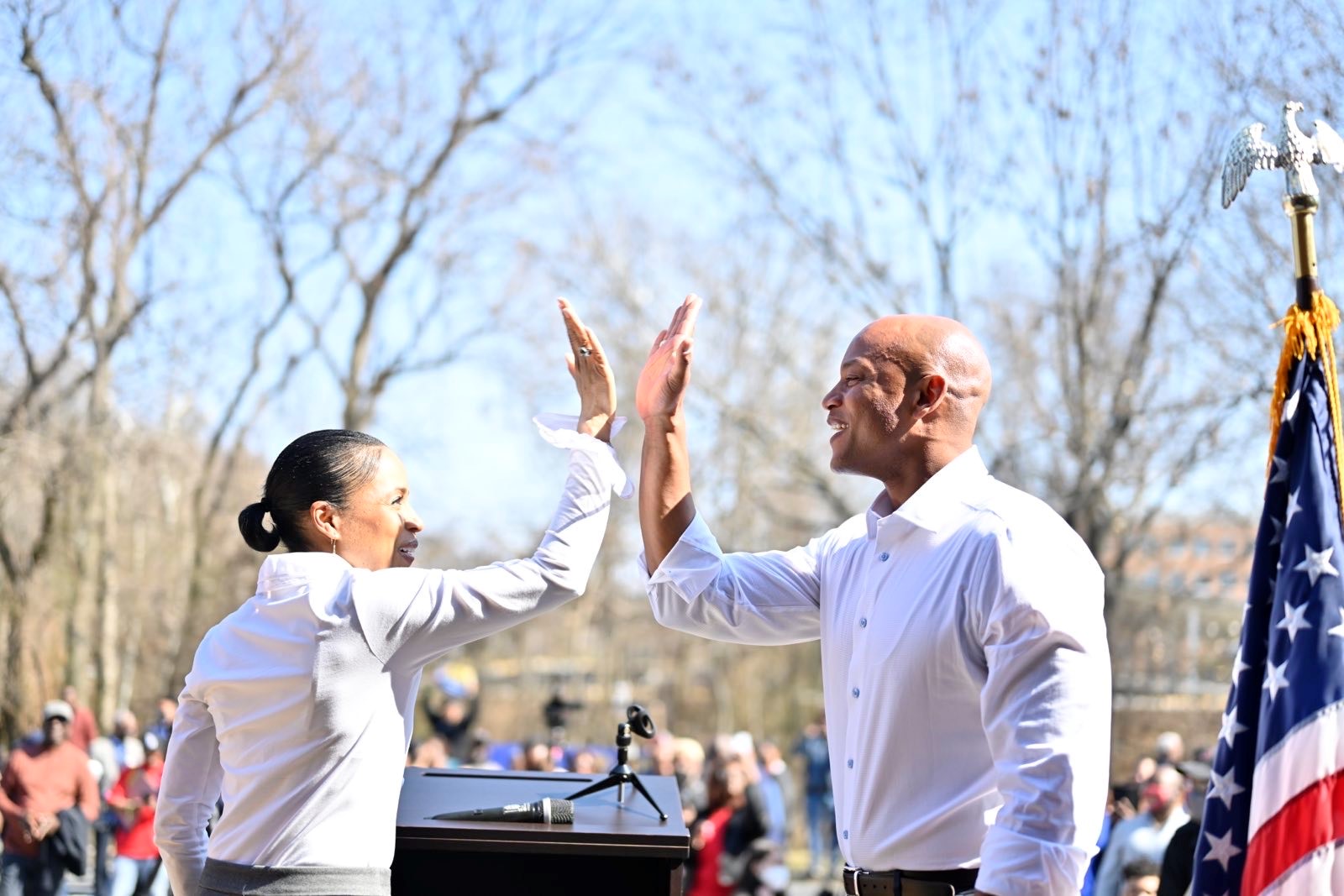Mileah Kromer: Adrienne Jones, Maryland’s Exemplar of Women’s Political Leadership

By Mileah Kromer
The writer is the director of the Sarah T. Hughes Field Politics Center at Goucher College, which conducts the Goucher College Poll. She can be reached at [email protected]. Twitter: @mileahkromer
Many have rightfully lamented the lack of female Democratic candidates running for governor and the absence of women currently represented in statewide office and Maryland’s congressional delegation. The home to women in politics icon Sen. Barbara Mikulski, the longest-serving woman in the history of the United States Congress, should not have this problem.
Still, some of the recent public commentaries on what’s missing regarding female elected leadership in Maryland have also included a glaring omission: An acknowledgment of House Speaker Adrienne A. Jones.
Alexandra Hughes, the Speaker’s Chief of Staff, noted as much on Twitter last month. And she’s right to hold all of us who offer public commentary accountable for it.
Madam Speaker deserves better.
Speaker Jones currently stands as Maryland’s exemplar of women’s political leadership. She is one of just nine female presiding officers of state legislative chambers in the United States and currently the only Black woman to hold this position.
As a presiding officer, Jones has near-unilateral power to advance or kill any piece of legislation.

Mileah Kromer, director of the Goucher poll.
She has thus far used her position to push forward a “Black agenda” that has included bills to address longstanding racial inequities in criminal justice, homeownership, and wealth. In this upcoming session, she plans to support a referendum on the 2022 ballot to decide whether recreational cannabis should be legalized; this work will likely include several provisions to address racial inequities regarding regulatory, licensing, and an oversight structure, as well as criminal justice.
According to data compiled by the Center for American Women in Politics at Rutgers University, the Maryland General Assembly is the 10th most gender-diverse legislative body in the country; about 41% percent of its members are women, 10 points higher than the national average. Moreover, the General Assembly includes the largest percentage of Black members of any state legislative body in the country, according to a January 2021 analysis by Governing magazine; about half these lawmakers are Black women.
There are just nine states with female governors, none of whom are Black. Only 45 women have ever served as governor in the history of the United States, and Maryland is among the 19 who have never had a female governor. Maryland is also one of 14 states without women currently serving in their congressional delegations. We’ve also never had a female state comptroller or attorney general.
These political realities highlight another reason why Jones needs to be at forefront in any conversation about women’s representation.
She can make a leader out of a backbencher, and her endorsement can turn a political hopeful into an elected official. The bench in Jones’ chamber is already deep with talented women, specifically Black women, who are poised to become key players in our state’s politics. Here, Jones can be a political queenmaker creating a pipeline of future female legislative leaders, county executives, congresswomen, and other statewide elected officials.
To be sure, Prince George’s County Executive Angela Alsobrooks is another Black female lawmaker sometimes left out of the more recent analyses of female representation in Maryland.
Alsobrooks has been on the frontlines addressing the pandemic along with all the other duties associated with managing the state’s second-largest jurisdiction. Prince George’s County has a larger population than five other U.S. states, to put her office in a national perspective. Like Jones, Alsobrooks deserves better.
I’m glad to see female candidates, like Kelly Schulz and Brooke Lierman, on the ballot for statewide office and other women like Heather Mizeur, Brittany Oliver, and Mckayla Wilkes running for Congress. I also look forward to learning more about the crop of female candidates with their sights set on the state legislature and other elected positions.
But any analysis of their candidacies in the larger context of women’s representation is incomplete without mentioning the most powerful female politician in the state, Adrienne Jones.




 Creative Commons Attribution
Creative Commons Attribution